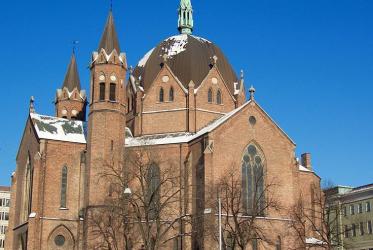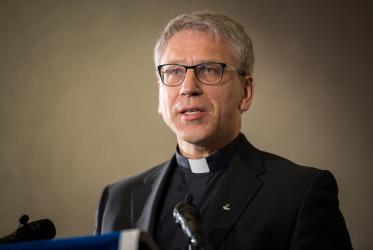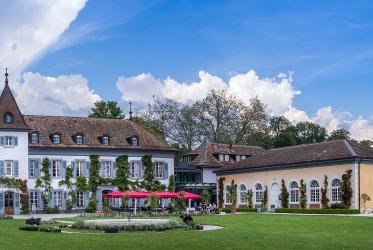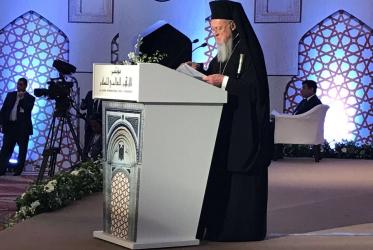Displaying 41 - 60 of 109
24 September 2018
#WCC70: Nathan Söderblom, ecumenical pioneer
29 August 2018
Peacemaking “a great and compelling life task”
09 December 2017
Norway to host prayers for peace on Nobel Prize weekend
05 December 2017
WCC welcomes Muslim World League general secretary
09 November 2017
Tveit: “We are called to embrace the gifts of the others”
07 November 2017
Roman Catholic-WCC group focuses on peace-building, migration
19 September 2017
WCC students study what makes a peace communicator
18 July 2017
G20 summit: call to pray for peace in Hamburg
07 July 2017
‘Love is stronger than hate’
02 May 2017
“What can we contribute as a worldwide fellowship?”
06 March 2017
WCC general secretary speaks on religion and discrimination
14 February 2017












